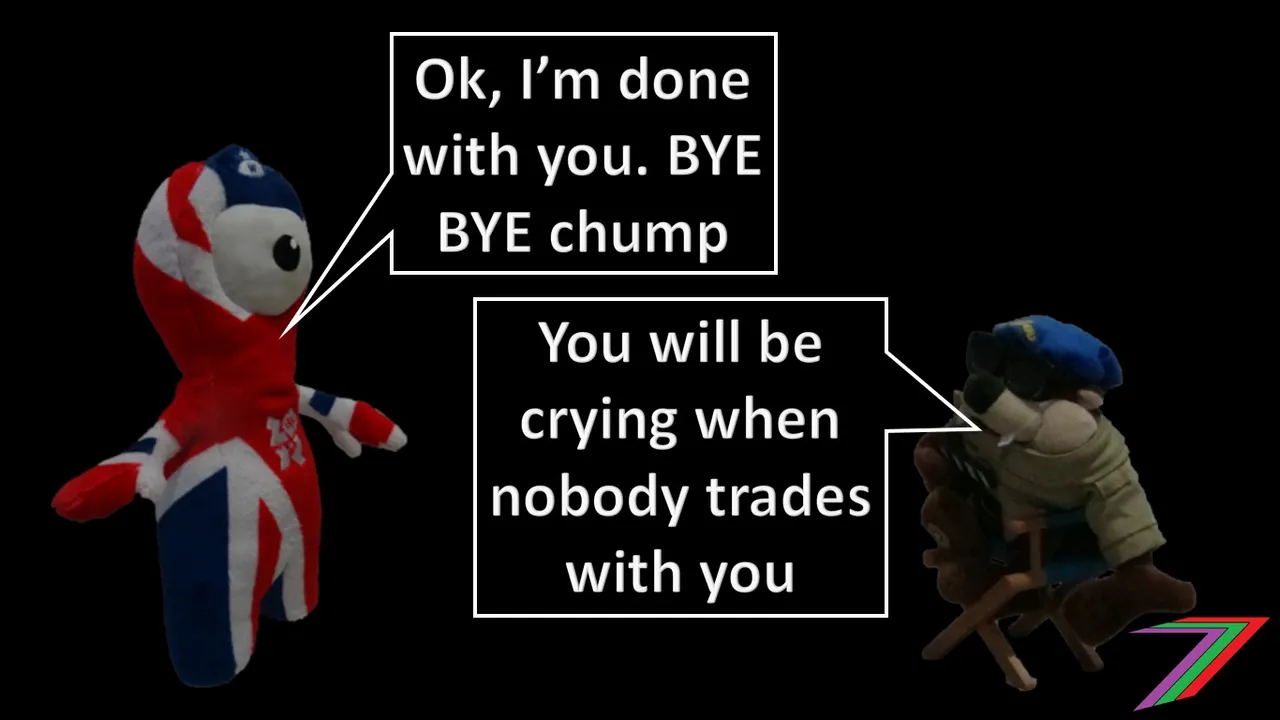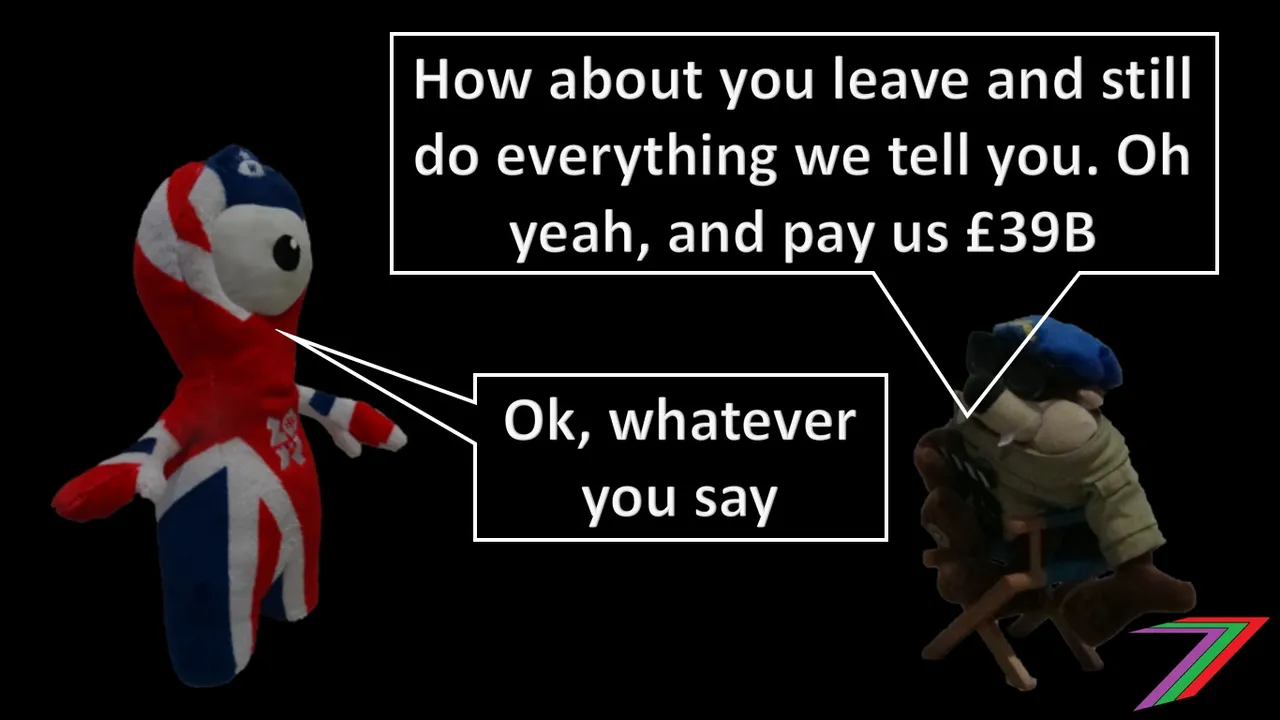Hi Everyone,

A few months ago I wrote a post discussing Brexit ’What’s going on with Brexit?’. This post briefly described the growth of the European Union, Brexit options and strategies. At the time of posting Brexit was scheduled to occur on the 29th March 2019.
In this post, I provide a brief update as well as express my own opinions regarding the events that have occurred so far in 2019.
Summary of events

Theresa May (The United Kingdom’s (UK) Prime Minister) brought her Brexit deal to parliament in January 2019. The deal was initially going to be voted on in December 2018 but the vote was delayed as it was deemed that it did not have sufficient support by parliament. When the deal was voted on, it was defeated by 230 votes. This did not kill the deal. The deal underwent some minor changes and was voted on again. This time the deal was defeated by 149 votes. The large second defeat in parliament still did not kill this deal. Instead, the UK was granted a 2-week extension by the European Union to enable a slightly modified version of the deal to be passed through parliament. On 29th March, her deal was defeated resoundingly for a third time, this time by 58 votes. Based on this defeat, the UK was scheduled to leave the European Union on 12th April with no deal.
The UK parliament is strongly opposed to the UK leaving the European Union without a deal. Theresa May met with the European Union to obtain a further extension. She was hoping for a short extension (June 2019). The European Union would rather have a long extension. A Brexit date of 31st October was decided on. This adds 7 months to the original date of 29th March. However, this extension is considered flexible. Therefore if a deal can be agreed upon before the 31st October, the UK can leave the European Union earlier. If a deal is not met before the 31st October, the UK should leave with no deal. The options of another referendum or a general election before the 31st October is still possible.
The European Union elections will most likely occur between 23rd and 26th May 2019. At this point, we should assume the UK will be participating in them.
My opinion

I strongly believe the UK should have left the European Union on the 29th March 2019. Two and half years should have been sufficient for a deal to have been worked out and agreed upon. Even if a deal is not made by that date, the UK should have left anyway. Not leaving the European Union on the 29th March is not honouring the referendum or the many promises to do so over the past few years.
Is leaving the European Union without a deal bad?

Leaving the European Union without a deal has been referred to as ‘crashing out’ or ‘leaving disorderly’. Several economists have predicted that leaving the European Union without a deal would be very harmful to the economy. Examples of long delays at customs and borders as well as potential shortages of particular goods have been used to demonstrate the possible negative impact of a no deal. The media interview business owners that claim they might go out of business because of the loss of the European Union as a customer. There have been several other reports of the possible disaster of a no deal.
In reality, it is very difficult to predict the full effects of a no deal. It is the most difficult scenario to predict, as it is the ‘hardest’ form of Brexit possible. It is likely that it will be problematic at first. The duration of this period is difficult to predict. The Irish border should not be expected to remain completely open. A technology solution to prevent a hard border should be possible but there is no guarantee. A border between Northern Ireland and the rest of the United Kingdom is also possible but this is unlikely to be desirable as it creates an artificial split.
A ‘no deal’ Brexit does not mean a ‘no deal’ situation is permanent. The UK and the European Union can still discuss trade terms. The UK and the European Union could arrange a free trade agreement similar to what Canada has with the European Union. Such an agreement would most likely take some time to finalise. However, interim agreements are still possible. The UK could also make agreements with other countries to help fill in the gaps from lost trade with the European Union. There will be plenty of opportunities for trade in the future.
How does ‘no deal’ compare with a soft Brexit?

A soft Brexit would be an arrangement such as a ‘Customs Union’ or ‘Common Market’. I explain these in detail in my post ’Trade Bloc or Trade Block?’. A soft Brexit offers stability as the change is minimal. The UK will forgo their role in European Union decision-making in exchange for some freedom. Such freedom would include control over the movement of people between the UK and the European Union as well as some flexibility around some European Union rules. It is unclear which rules the UK can avoid. The UK would also need to pay a leaving bill of £39 Billion. A soft Brexit can be arguably considered as slightly worse for the UK than remaining in the European Union.
A ‘no deal’ Brexit, because of the uncertainty, could be argued to be far worse than remaining in the European Union or Common Market. To the contrary, the potential to make deals with other countries could result in a ‘no deal’ making the UK considerably better off than remaining in the European Union. There is a trade-off between stability and opportunity. It really depends if the Government are able to make the necessary deals to limit tariffs and secure free trade and if British businesses are able to create new opportunities.
What does the European Union want?

The European Union wants the UK to remain in the European Union. The UK has the second largest economy in the European Union. The UK is the European Union’s second largest export market for goods (Fullfact 2018). Approximately 18% of European Union exports go to the UK, if we exclude trade figures with the European Union (this is relevant if we assume the UK to be outside the European Union). The UK is a very important trading partner for the European Union. Brexit jeopardises this export market. A soft Brexit greatly reduces the risk. A ‘no deal’ Brexit will most likely be very harmful to the European Union. Unlike for the UK, a ‘no deal’ Brexit offers no additional opportunities to the European Union. The departure of the UK could make the European Union a less attractive trading partner for other countries. For example, the USA could make trade deals directly with the UK, which they would have made with the European Union in order to access the UK.
The European Union is strongly pushing for a long extension to Brexit. These actions are consistent with an attitude to keeping the UK in the union. The uncompromising approach to negotiations is also another indication that the European Union wants the deal to be unsatisfactory so that the UK will be pushed to ask for an extension or even have another referendum.
What does the United Kingdom want?

Based on the results of the referendum, the majority of the people want the UK to leave the European Union. However, there is a very large number of people, which want the UK to remain. People in Scotland and Northern Ireland are generally in favour of the UK remaining. This is a fundamental problem with referendums, see my post ’Could democracy succeed if it was given a chance?’ for more information.
The Government and the opposition party are generally opposed to Brexit. This is a huge problem as the motivation to negotiate a Brexit deal, which aligns with the result of the referendum, is absent. A hard deal along the lines of a Canada type deal would best honour the results of the referendum. A soft Brexit will not satisfy those supporting Brexit (clean break from the European Union) nor those that oppose Brexit, as a soft Brexit appears less favourable than remaining in the European Union.
The UK Government has also a very poor approach to negotiating with the European Union. They have let the European Union dictate the terms of negotiation and have compounded this by taking the ‘no deal’ option off the table. The opposition party have also pushed to remove ‘no deal’ as an option. Therefore, the European Union has almost complete control over what is acceptable and what is not. The constant disagreements in parliament along with the persistent delay tactics regarding voting for a deal and then the persistence of putting forward the same deal which has consistently been defeated strongly indicates the UK Government and opposition’s unwillingness to advance Brexit.
Will Brexit actually happen?

I do not know if Brexit will actually happen. A lot can happen between now and 31st October. It is possible that the UK will have a change of leadership. This could result in another referendum or the complete withdrawal of Brexit. I think another referendum is more likely than a complete withdrawal. I think another referendum is most likely to happen after a change of leadership. I believe if there is another referendum, it will come out in favour of remain. The campaigning for remain will be overwhelming. Fear mongering regarding the dangers of a ‘no deal’ Brexit will be hyped even more. I would also not rule out ‘fixing’ of the referendum results so that Brexit is defeated.
I will look at Brexit again in 6 months’ time to see what has happened or earlier if a deal is actually reached. If you have any comments or feedback, feel free to reply in the comments section of this post.
More posts
If you want to read any of my other posts, you can click on the links below. These links will lead you to posts containing my collection of works. These posts will be updated frequently.




Steem - The Future of DApps




